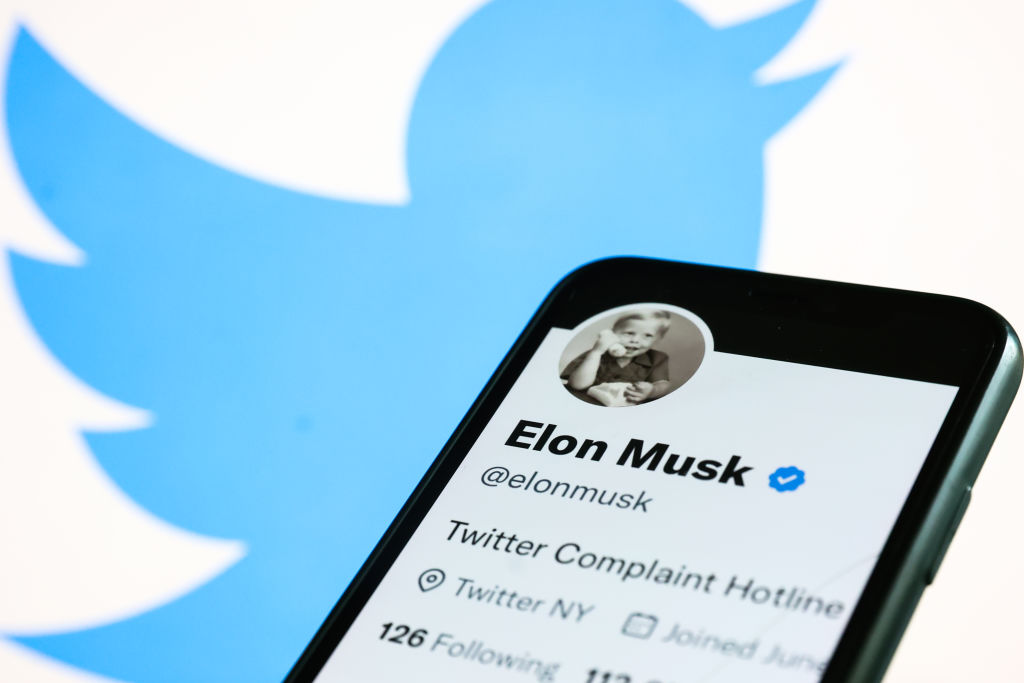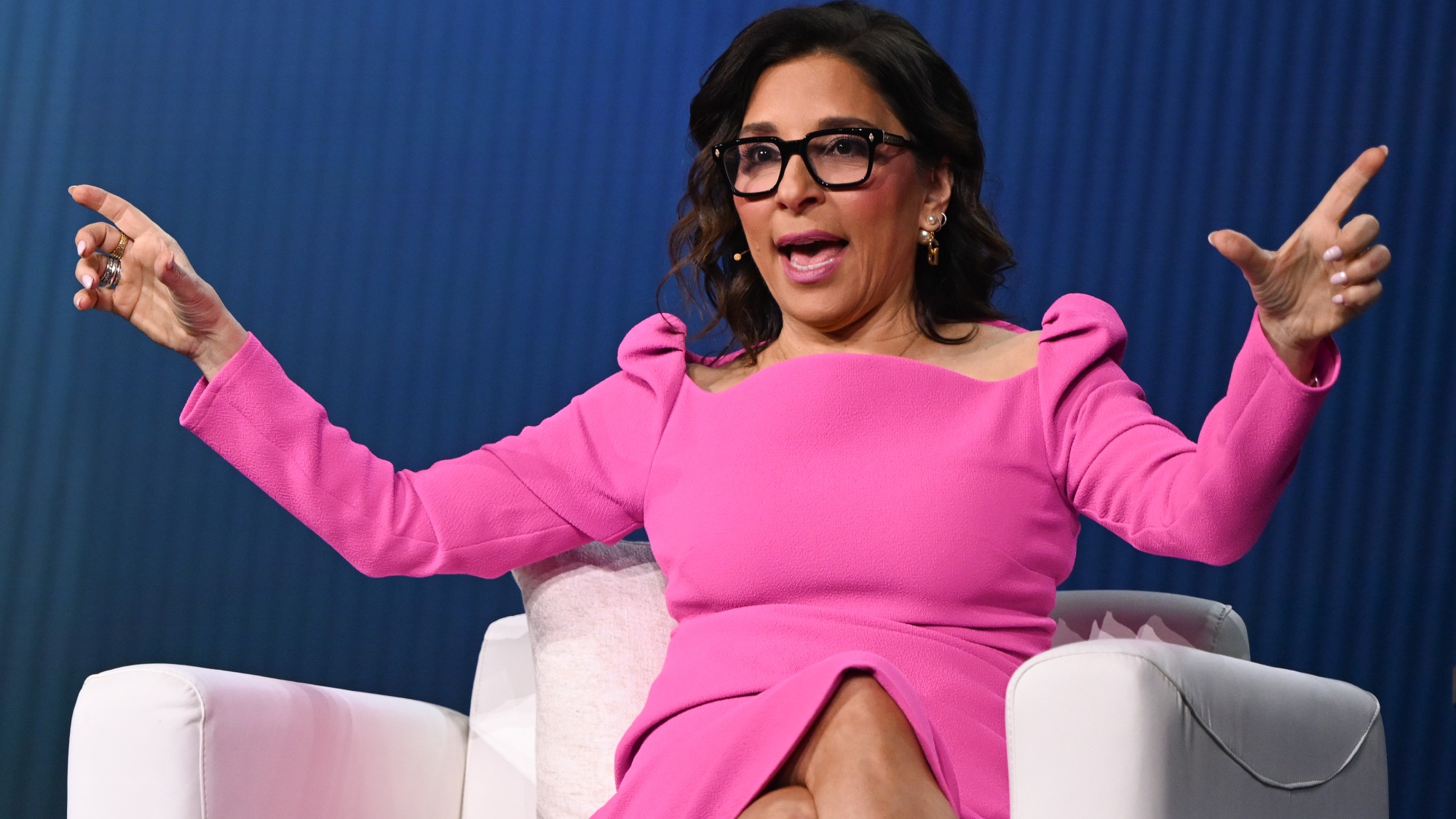Twitter reportedly pauses sign-ups for verification checkmark after 'impersonation issues'


A free daily email with the biggest news stories of the day – and the best features from TheWeek.com
You are now subscribed
Your newsletter sign-up was successful
Twitter is reportedly pressing pause on allowing users to buy verified blue checkmarks after the new feature prompted impersonators to flood the platform.
The social media platform suspended the launch of the new Twitter Blue subscription service, which offers a verified blue checkmark for $8 a month, "to help address impersonation issues," an internal note said, according to Platformer's Zoë Schiffer. The news was confirmed by The Washington Post, which reported that Twitter told employees on Thursday night it is temporarily disabling Twitter Blue sign-ups. Existing subscribers were reportedly still able to access Blue's features.
The suspension comes as Twitter is inundated with users capitalizing on $8 verification to impersonate a number of high-profile accounts, including NBA star LeBron James, Nintendo, and more. On Thursday, a fake account for pharmaceutical company Eli Lilly claimed that "insulin is free now," leading the real Eli Lilly to "apologize to those who have been served a misleading message from a fake Lilly account" — and the company's stock took a hit.
The Week
Escape your echo chamber. Get the facts behind the news, plus analysis from multiple perspectives.

Sign up for The Week's Free Newsletters
From our morning news briefing to a weekly Good News Newsletter, get the best of The Week delivered directly to your inbox.
From our morning news briefing to a weekly Good News Newsletter, get the best of The Week delivered directly to your inbox.
On Wednesday, Twitter started rolling out a solution to this issue: A second "official" checkmark for high-profile accounts. Hours after it launched, though, owner Elon Musk said he "just killed it," and the flag began disappearing from accounts. But the "official" label was launched for a second time on Friday for "some accounts," and an internal announcement reportedly said it was "for ONLY advertisers."
This is despite the fact that Musk in a Q&A on Wednesday dismissed the "official" label as an "aesthetic nightmare" and "another way of creating a two class system."
A free daily email with the biggest news stories of the day – and the best features from TheWeek.com
Brendan worked as a culture writer at The Week from 2018 to 2023, covering the entertainment industry, including film reviews, television recaps, awards season, the box office, major movie franchises and Hollywood gossip. He has written about film and television for outlets including Bloody Disgusting, Showbiz Cheat Sheet, Heavy and The Celebrity Cafe.
-
 5 blacked out cartoons about the Epstein file redactions
5 blacked out cartoons about the Epstein file redactionsCartoons Artists take on hidden identities, a censored presidential seal, and more
-
 How Democrats are turning DOJ lemons into partisan lemonade
How Democrats are turning DOJ lemons into partisan lemonadeTODAY’S BIG QUESTION As the Trump administration continues to try — and fail — at indicting its political enemies, Democratic lawmakers have begun seizing the moment for themselves
-
 ICE’s new targets post-Minnesota retreat
ICE’s new targets post-Minnesota retreatIn the Spotlight Several cities are reportedly on ICE’s list for immigration crackdowns
-
 Australia’s teen social media ban takes effect
Australia’s teen social media ban takes effectSpeed Read Kids under age 16 are now barred from platforms including YouTube, TikTok, Instagram, Facebook, Snapchat and Reddit
-
 X update unveils foreign MAGA boosters
X update unveils foreign MAGA boostersSpeed Read The accounts were located in Russia and Nigeria, among other countries
-
 Google avoids the worst in antitrust ruling
Google avoids the worst in antitrust rulingSpeed Read A federal judge rejected the government's request to break up Google
-
 Supreme Court allows social media age check law
Supreme Court allows social media age check lawSpeed Read The court refused to intervene in a decision that affirmed a Mississippi law requiring social media users to verify their ages
-
 What's Linda Yaccarino's legacy? And what's next for X?
What's Linda Yaccarino's legacy? And what's next for X?Today's Big Question An 'uncertain future' in the age of TikTok
-
 Nvidia hits $4 trillion milestone
Nvidia hits $4 trillion milestoneSpeed Read The success of the chipmaker has been buoyed by demand for artificial intelligence
-
 X CEO Yaccarino quits after two years
X CEO Yaccarino quits after two yearsSpeed Read Elon Musk hired Linda Yaccarino to run X in 2023
-
 Musk chatbot Grok praises Hitler on X
Musk chatbot Grok praises Hitler on XSpeed Read Grok made antisemitic comments and referred to itself as 'MechaHitler'
